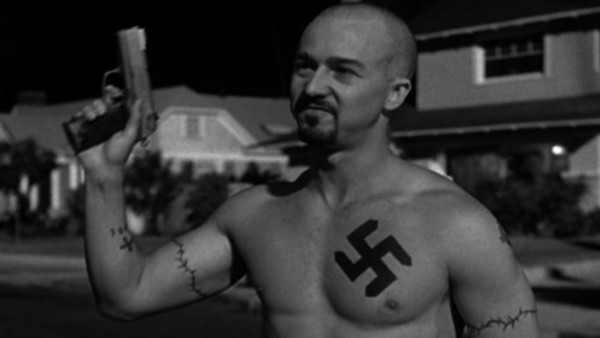10 Movies That Made You Sympathise With Terrible People
Murderers, rapists, Nazis - sometimes a film can make us feel for the most awful people.

One of cinema’s most powerful qualities is to let us into the mind of any type of character. When done well we viewers can relate to them as fellow human beings, not just archetypes in a work of fiction. We can then sympathise with our hero and their plight. This emotionally investment is all part of good storytelling. More often than not, the sympathetic hero tends to be a good person with virtuous qualities, who earns our sympathy by overcoming the trials and tribulations of the story.
However, sometimes our hero is not a good person. Sometimes our hero is a criminal. Perhaps they have done some terrible things or they hold reprehensible beliefs or desires. Sometimes it is the antagonist who we end up feeling sympathy for. The recent trailer for the new Joker origin story film paints Joaquin Phoneix’s Clown Prince as a tragic anti-hero who is created by a vicious society. Should we be feeling sympathy for a psychopath?
This list looks at ten films that make the viewer sympathise with terrible people. They test our moral absoluteness of liking goodies and hating baddies, and dares us to see the humanity within all these characters, despite their despicable actions, and some of these films have been met with controversy for doing so.
10. American History X

Being a neo-Nazi makes you a terrible person. The mindset of a racist is one that rejects empathy for anyone that isn’t your skin colour. So how do we start to sympathise with that type of person?
American History X tackles the question of what makes people racist. Derek (Edward Norton) starts the film as a vehement neo-Nazi. Derek's anger is wholly human, stemming from a deeply personal tragedy (his father being killed by a black gang) that he has never had closure on. But he realises, through becoming a victim of violence himself in prison, that his anger was misguided. Black people don’t cause violence, violent people cause violence.
Upon Derek's release from prison he is reformed and vows to change his brother Danny's (Edward Furlong) own racist views. We desperately want Derek to steer Danny away from the same fate as their father, and when he finds Danny’s murdered body and sobs, we have nothing but pity for a man whose life has been destroyed by a cycle of violence.
The stinger of course is that Derek was exposed to racism by his father as a child, long before he was murdered. It is the bleak reality that racism starts in the family home. His father’s racist rants planted the seeds that violence made grow.